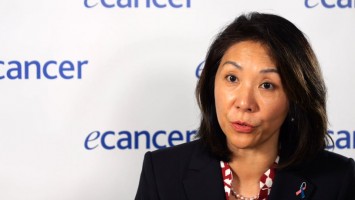World Cancer Leaders’ Summit 2015
A global strategy for noncommunicable diseases
Dr Douglas Bettcher - Director of WHO's Department for Prevention of Noncommunicable Diseases
We used to have the Millennium Development Goals, now we’ve got Global Sustainable Development Goals, can you tell me what is happening in the context of non-communicable diseases?
A major sea-change. I would say that non-communicable diseases, the big killers – cancer, heart disease, respiratory diseases, diabetes – were really orphaned from the Millennium Development Goals. Although they have been the biggest killer since the turn of the century they were not included as priorities in the Millennium Development Goals but I just attended last month, the end of September, a heads of state meeting at the UN General Assembly where the world leaders have adopted a new set of goals, interrelated goals, that now put non-communicable diseases and prevention on the priority development goals, sustainable development goals, from 2015 to 2030.
What physically can the World Health Organisation do to get non-communicable diseases targeted? What simple steps can be taken?
We have what we call the non-communicable disease best buys, both for prevention and management. To give you a very concrete example, my first job at WHO was helping with overseeing the negotiation of WHO’s first treaty, the Framework Convention on Tobacco Control, which is now one of the most successful treaties in UN history, it’s the same principle as the Framework Convention on Climate Change that your viewers will recall or understand. Within the heart of the Framework Convention WHO has adapted what we call a technical package of effective measures. If you do those measures at the highest level you know for sure that you’re going to be successful in reducing tobacco use and cancer deaths, deaths from non-communicable diseases. MPOWER, what it represents is P, completely protecting populations from exposure to tobacco smoke, so complete bans on smoking in all public places and workplaces, offering help to quit. Warnings, the big pack warnings, over 50% graphic warnings and also now plain packaging like you have in the UK, it’s coming along. Complete bans of all forms of advertising, promotion and sponsorship is the E and finally raising taxes and prices, these are a formula for success. The only country in the world that has a perfect score, in the world, is the country we’re sitting in today, Turkey, the only country in the world that has a perfect MPOWER score at the highest level of achievement.
That’s great, Turkey’s doing well then, or it has made a start, at least, and a number of countries have done well. But how can the World Health Organisation help these measures to get to low and middle income countries where tobacco is still growing?
Targets of our work, of course we work with all of our 194 member states, high income countries and low and middle income countries, our target though, where our offices are and where our focus of attention is is in developing countries. With the Sustainable Development Goals, with the priority accorded in the WHO to prevention and control of non-communicable diseases, we’re working through a taskforce of all UN agencies, almost 25 UN agencies under the umbrella of the Secretary General of the United Nations, to bring the force of the entire United Nations to the ground, working together, working with civil society, working most recently in a very innovative partnership to adapt innovative technologies - the fact that there are almost more mobile phones in the world than there are people.
Now you’ve got the Be Healthy, Be Mobile initiative.
Out of that we’re seizing the power of information technology, joining our sister agency in the United Nations, the International Telecommunications Union that works with telecoms and information ministries in countries to now scale up in developing countries, for example Senegal, Zambia, India, Costa Rica, using information technologies to help that, to advance tobacco cessation, to improve cervical cancer screening, to improve treatment and awareness of diabetes.
You’re looking ahead fifteen years, how much success do you think you’ll have?
We have targets, globally there are now targets both the WHO member states and the UN members states have achieved. There’s a target for the world community under the sustainable development goals of reducing premature mortality from non-communicable diseases by one-third by the year 2030. So that’s 2015 to 2030. We’re optimistic that if we focus our attention on working through the partnerships which this partnership, civil society, private sector, governments, UN agencies, applying what WHO calls the best buys for prevention and control of NCDs that we can reach those targets.
And the take home message for, in very brief terms, how to do this, what would that be?
The importance, because your audience is mainly clinical specialists, the importance in the medical community of joining forces between public health and clinical practitioners and partnerships across the spectrum to work together to make this possible.








